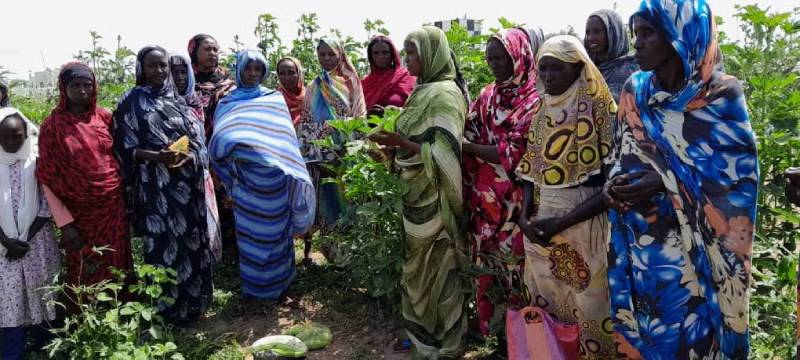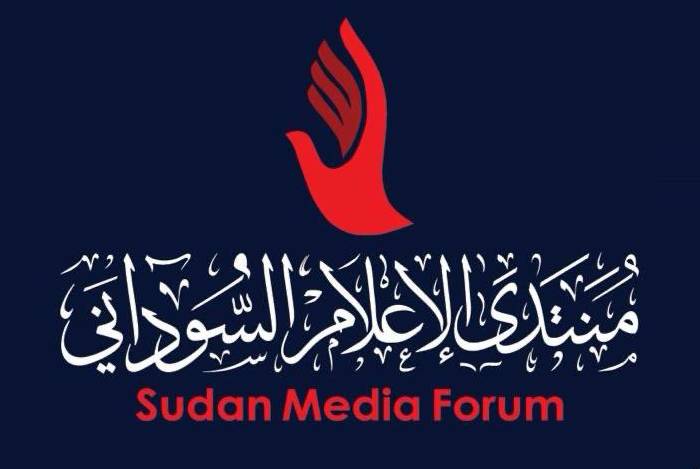
Under the Ashes of War: Farmers of Central Sudan Struggle to Revive Their Lands
Wad Madani, 24 May 2025 (Ayin) – Amid the destruction of war and the paralysis of daily life, farmer Omar Goz in the Suki Agricultural Project, located in Sennar State, central Sudan, is preparing for his first farming season since the outbreak of conflict. Burdened by the looming fear of failure, Goz, along with thousands of farmers across Sennar and Al Jazirah states, faces formidable challenges: collapsed irrigation channels, halted financing, and a severe shortage of farming equipment and technologies. Despite the daunting circumstances and lack of basic agricultural resources, Goz remains determined to return to his land—his only means of livelihood, as he tells Ayin.
Mounting Challenges Threaten the Farming Season
With the summer planting season approaching, efforts to prepare farmland in Al Jazirah and Sennar—home to the country’s largest agricultural projects—are alarmingly weak, threatening to shrink cultivated areas drastically. This grim reality starkly contrasts with the early promises made by local governments to ensure a successful season.
The biggest concern for farmers is the lack of access to banking credit. Many fear exclusion from new financing opportunities due to debts accumulated prior to the war. Matters worsened when the Agricultural Bank began demanding debt repayments, even jailing some farmers in Al Jazirah, according to Ayin’s sources.
The Heavy Legacy of War
Both Al Jazirah and Sennar have suffered deeply since the Rapid Support Forces (RSF) swept through in December 2023. The offensive caused an almost complete halt to agricultural activity, accompanied by widespread looting of equipment, fertilizers, pesticides, and even harvested crops. This loss of resources, coupled with mounting debts to the Agricultural Bank, makes the farmers’ return to their lands—despite the Sudanese army regaining control in parts of the region—a perilous endeavor.
Government Plans and Fragile Hopes
In a bid to tackle the crisis, the government of Sennar State has put forward what it calls an intensive plan for the upcoming agricultural season, framing farming as a lifeline out of the crippling economic crisis. Sennar’s Minister of Production and Economic Resources, Engineer Alhadi Al-Sadiq, announced early preparations to ensure the success of the 2025 farming season “despite the challenges.”
The Plight of the Suki Agricultural Project
Yet, such announcements find little reflection on the ground in major agricultural projects. Farmer Omar Goz outlines the structural problems facing the Suki Project, with the crumbling irrigation system at its core. Speaking to Ayin, he says:
“The project spans 124,000 feddans, relying on four aging pumps that date back to the project’s establishment in 1970. There were attempts to repair them, but the new pumps do not meet the required specifications.”
He continue “The main irrigation channels have collapsed, the minor canals need cleaning, and the entire irrigation system needs rebuilding. If the government wants to prevent the season’s failure, it must urgently intervene to revive the irrigation infrastructure.”
Omar Goz points out the financing hurdle: “In 2022, an initiative secured funding from the Agricultural Bank amounting to one trillion Sudanese pounds for fertilizers and diesel. However, many of those involved were not real farmers. They defaulted on the loans, which has deprived genuine farmers of access to financing until now.” Goz also strongly criticizes the agricultural unions, accusing members of the former ruling National Congress Party of monopolizing them since the 1990s, focusing on consolidating their own influence rather than solving farmers’ problems.
Kassab Project: Broken Promises
The situation is no better in the Kassab Agricultural Project in Sennar State. Farmer Abdelilah Al-Nour expresses frustration over the lack of any government preparations, particularly regarding the cleaning of irrigation canals. Speaking to (Ayin), he says: “Sadly, neither the administration of the Blue Nile Irrigated Projects nor the state has taken any preparatory steps. The ‘Roweina’ irrigation pump is ready, but the project’s infrastructure, especially the canals, is completely dilapidated.” Al-Nour reveals that a private investor had promised to finance operations, but the high costs caused the plans to collapse. He emphasizes that farmers have already conducted initial cleaning operations but are “waiting for a funding source—there’s no other livelihood but agriculture.” The additional burden of having to pay electricity fees upfront only compounds the challenges.
Gezira State: Farmers Imprisoned Over Debts
In Gezira State, farmers face similar challenges, particularly a lack of financing. Salman Al-Hadi, a farmer from the Gezira Project, tells (Ayin): “Farmers live in constant fear due to the Agricultural Bank’s demands for pre-war debts, which they could not repay after the harvest failed and the Rapid Support Forces looted the crops.” He adds, “Some farmers in Al-Qurashi locality have already been jailed following complaints from the Agricultural Bank, and it’s expected that thousands of defaulters will face similar legal action, which could doom the agricultural season unless urgent action is taken.”
It’s worth noting that the Gezira and Managil Project, established in 1925 and covering 2.2 million feddans, is one of the largest irrigated agricultural projects in Africa, supporting the livelihoods of millions of Sudanese.
Expert Perspectives: High Costs, Lack of Support
Agricultural engineer Mohamed Osman warns that a lack of financing and the rising costs of inputs threaten food self-sufficiency. He points out the scarcity of tractors for land preparation and the skyrocketing prices of diesel. Speaking to (Ayin), he explains: “The financing available through companies or banks has a negative impact due to the high input costs. This pushes farmers to reduce their cultivated areas and focus on lower-cost crops like sorghum, which affects both diversity and productivity.”
For his part, engineer Tayeb Abdullah, director of an agricultural input company in Sennar State, confirms that the rapid devaluation of the currency has led to soaring input prices, inflicting heavy losses on companies. Regarding fuel, he says: “The problem is not just availability, but also the permits required to obtain it. Moreover, the costs of diesel and fertilizers are extremely high, and fuel itself is in short supply.”
Systematic Looting and Security Deterioration
Abdullah stresses that agricultural areas rich in rain-fed farming, such as Dali, Al-Mazmum, Al-Dinder, and Al-Suki, have experienced widespread looting of crops and machinery by the Rapid Support Forces, leading to massive losses and financial hardship for farmers. Irrigation projects have also been severely damaged, with pumps and canals vandalized. Areas like Dali and Al-Mazmum continue to face security threats due to their proximity to Rapid Support Forces-controlled territories, casting a dark shadow over the upcoming summer season.
A Glimmer of Hope Amid Challenges
Despite this grim reality, engineer Tayeb Abdullah expects that cotton will be planted across 400,000 feddans, while sorghum and sesame will cover larger areas in Al-Dinder, East Sennar, and Al-Suki. He concludes, “There is some optimism among citizens who have sold personal assets to fund their farming efforts, but overall, the interruption of agricultural production remains the dominant trend.”
While farmers in central Sudan bravely struggle to bring their lands back to life, the lack of financial support, crumbling infrastructure, security threats, and harsh banking practices risk turning their hopes into a mirage. The upcoming agricultural season hangs in the balance, dependent on urgent and fundamental interventions to salvage what can still be saved—and to secure the livelihoods of millions who depend on these lands.
This report is published by the Sudan Media Forum and its partner organizations, based on coverage by (Ayin) Network, as part of efforts to highlight the challenges facing civilians in Gezira State as they strive to make the agricultural season a success.


